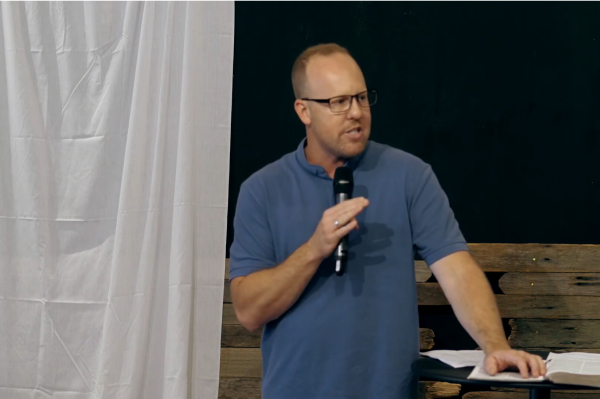Barbarism 2014: On Religious Cleansing by Islamists

In a brief, nationally televised announcement on August 7th regarding the Islamic State, which invaded the multicultural, northern Nineveh Province of Iraq this summer, President Obama observed "these terrorists have been especially barbaric towards religious minorities, including Christian and Yazidis."
The brutal persecution of Iraq's non-Muslim religious groups is part of a human rights atrocity that is as grave as it is overlooked in American foreign policy. The president's eight-and-a-half-minute speech hardly scratched the surface. In fact, what the Islamic State, also called ISIS or ISIL, is undertaking in Iraq, as part of its effort to establish an Islamic caliphate, is a religious cleansing intended to eradicate the entire presence of the country's non-Muslim citizens. Nor is this campaign restricted to Iraq. Similar campaigns are under way in other countries in the Middle East, Africa, and Asia. They are being carried out by a multitude of extremist groups and directed against a variety of minorities, although they are directed most commonly and with special zeal against Christian communities that in some cases have coexisted with Muslims for more than a thousand years. Militant groups such as the Islamic State are mostly to blame, but extremist influences have also gained official footing within some governments. In most places where religious oppression of Christians is taking place, Christians and other targeted religious communities find that their governments typically turn a blind eye and a deaf ear to their plight.
In Iraq and Syria, for example, the two-thousand-year-old Christian communities are facing an intense wave of religious persecution that has led to a panicked exodus of their members from the region. Even before this past summer's attack by the Islamic State on the Christian centers of Mosul, Qaraqosh, and all other Nineveh towns, leaders of the Iraqi church reported that one million, or between one-half and two-thirds of their community, have fled the country since 2003.
Last year, Archdeacon Emanuel Youkhana of the Assyrian Church of the East, observed: "Behind the daily reporting about bombs there is an ethno-religious cleansing taking place, and soon Syria can be emptied of its Christians."
Bishop Angaelos of the UK Coptic Orthodox Church told the US Congress last December that attacks against Egypt's Copts—the most robust Christian community in the Middle East—by "radical elements" are not merely targeting individuals, but "the Christian and minority presence in its entirety."
It is little wonder why, in December 2013, Patriarch Louis Sako of Iraq's Chaldean Catholic Church, speaking at a conference in Rome sponsored by the Jesuit Georgetown University and the Baptist Baylor University, said: "We feel forgotten and isolated. We sometimes wonder, 'If they kill us all, what would be the reaction of Christians in the West?'"
Some three hundred prominent American Christian leaders were moved to respond to Sako's remarks, and, assembling in the US House of Representatives on May 7, 2014, pledged to call together their communities to pray, educate, and engage in foreign policy on behalf of the targeted minority communities in Iraq, Syria, and Egypt. Present were Catholic Cardinal Donald Wuerl, an Armenian and a Greek Orthodox bishop, and various heads of large Protestant bodies, including the National Association of Evangelicals. This "Pledge of Solidarity and Call to Action on Behalf of Christians and Other Small Religious Communities in Egypt, Iraq, and Syria" was also signed by other American Christian bishops and mega-church pastors, who collectively lead the majority of American churches, as well as by a bipartisan mix of prominent lay leaders.
The pledge identified common practices of religious violence against Christians occurring in those three countries. These practices are also the types of persecution experienced by Christians today in parts of Nigeria, Somalia, Sudan, Pakistan, and a growing list of other countries as Islamic extremism spreads. They include:
Churches—sometimes while full of worshippers—monasteries, cemeteries, and Bible centers are deliberately demolished and crosses on others are removed.
• The building and repairing of churches are curbed and prohibited.
• Private Christian homes, businesses, and lands are looted, confiscated, or destroyed because some challenge Christians' right to property, thus curtailing livelihoods.
• Christians, including some clergy, after being identified as such by their names, identity cards, or some other means, are beheaded, shot execution-style, or otherwise brutally murdered. Clergy are killed for their peace-making efforts or simply as personifications of the Christian faith.
• Christians, including bishops, priests, pastors, and nuns, are kidnapped and held for ransom.
• Young women are abducted and forced to convert to Islam and marry their captors.
• Christians are told to convert to Islam or be killed; some are forced to pay protection money.
• Muslim apostasy and blasphemy codes and standards for dress, occupation, and social behavior are being enforced for Christians, as well as for Muslims.
It should be noted that such assaults continue despite their rejection by the majority of Muslims and their condemnation by prominent Muslim voices, such as Prince Ghazi bin Muhammad of Jordan and the Iraqi Shiite cleric Grand Ayatollah Ali al-Sistani.
In some areas, Christians are being targeted for assassination by Islamic extremists and radicalized mobs. These attacks differ from the chronic violence in Muslim-majority countries directed generally against "apostates" from Islam. While these targeted murders frequently occur in the context of larger conflicts, the victims should not be mistaken for war casualties, since they are neither combatants nor hapless subjects of collateral damage.
Some radical groups have been blunt in openly declaring their intent to eradicate all infidels. In Somalia, in 2003, Sheikh Nur Barud, vice chairman of an influential Somali Islamist group, declared, "All Somali Christians must be killed according to the Islamic law." For a decade, moreover, the Somali extremist group al-Shabab has killed Christians, converts or not, irrespective of their individual behavior. One example is that of Italian Catholic nun Sister Leonella Sgorbati, Somalia's Mother Teresa, who had lived in Somalia for forty years, giving medical aid to the poor. In 2006, she was shot in the back outside a Somalia hospital. In March of this year, near the capital city of Mogadishu, Abdishakur Yusuf, the leader of five underground Protestant congregations, was shot in the head five times by extremists.
On April 7th of this year, assassins burst into the monastery of Jesuit priest Frans van der Lugt in Homs, Syria, and shot him twice in the head. Although the priest had carried out humanitarian work there for some fifty years, in 2014 he was suddenly a symbol of the "infidel," one of fewer than two dozen Christians remaining in Homs out of what had been until recently a population of eighty thousand.
Several other Syrian clerics have been murdered in cold blood since 2011. In Raqqa, another renowned Jesuit and man of peace, Father Paolo Dall'Oglio, was abducted and reportedly executed by rebels in July 2013. In February 2013, twenty-seven-year-old Father Michael Kayal, of Aleppo's Armenian Catholic Church, was pulled off a bus when Islamist gangs spotted his clerical garb. He's presumed dead. A similar fate befell the Greek Orthodox priest Maher Mahfouz around the same time. In December 2012, reports surfaced of the abduction of Syrian Orthodox priest Fadi Haddad, taken as he left his church in the town of Qatana to negotiate the release of one of his kidnapped parishioners. A week later, his mutilated corpse was found by the roadside, his eyes gouged out.
Iraq has also seen a rash of high-level clerical assassinations. In November 2006, Father Mundhir al-Dayr was taken from his Protestant church in Mosul and found later with a bullet in his head. As they went about their ministry in June 2007, Father Ragheed Ganni and three deacons were gunned down in their car, which was rigged with explosives to prevent anybody retrieving their bodies. Anglican Canon Andrew White, who leads a Baghdad ecumenical congregation, reported in November 2007: "All of my leadership were . . . taken and killed—all dead."
Earlier this year, an Armenian Orthodox bishop from the region told me that two jihadis stopped and searched a bus in Syria, and from the group of largely Kurdish passengers took away two whom they identified from their names as Armenian Christians; soon, the jihadis returned and presented the passengers with a box containing the severed heads of the two Christians.
Prominent laypersons are also marked for assassination. Pascale Warda, Iraq's minister of migration in 2004 and a Christian, survived four assassination attempts, including one that killed her four bodyguards. Iraq's lay Christians have also been targeted for not abiding by Muslim dress or social codes. There are numerous documented reports of Christians killed by extremists for mingling with the opposite sex, or for operating "un-Islamic" businesses, such as liquor stores, cinemas, and hair salons. In 2010, roadside bombs blew up a convoy of school buses organized by the Catholic diocese to transport university students from the Christian towns of the Nineveh Plain to the University of Mosul. The attack occurred despite an army escort. Sandy Shibib, a young woman studying biology, was killed from shrapnel wounds to her head; one hundred and sixty others were injured. After this episode, a thousand Christian students withdrew from the university, which was exactly the result the terrorists hoped for.





















